Premiering April 30th at 11:00 a.m. PT
A lost film is given new life in our latest Digital Short "let me come in." Pulitzer Prize-winning composer David Lang crafted this piece specifically for the stunning soprano of the incomparable Angel Blue. The utterly-compelling music is given a gorgeous visual treatment by the extraordinary filmmaker Bill Morrison, resurrecting footage from a long-forgotten silent film circa 1928.
Make sure you tune in to "let me come in" below when it premieres April 30th at 11:00 a.m. PT.
A Note from Composer David Lang
let me come in was written for the soprano Angel Blue, co-commissioned by LA Opera and the Fisher Center at Bard College.
let me come in is part of a series of pieces I have been writing over the past several years, in which I have applied different literary filters to the text of the biblical Song of Songs. The idea behind this series is that if we look at the text from many different angles it may eventually begin to reveal more of its emotional and spiritual powers. Or at least that is the hope.
For this song, I started with one verse in the King James version of the text, where the woman is awaiting the knock of her lover on her door.
5:2 I sleep, but my heart waketh: it is the voice of my beloved that knocketh, saying, open to me, my sister, my love, my dove, my undefiled: for my head is filled with dew, and my locks with the drops of the night
I love the sense of waiting for something beautiful to happen, the anticipation of the moment, and also I love that the narrator hasn't moved to open the door yet–the sensuousness of the waiting is more powerful for her, and for us, than the actual physicality of meeting.
Of course, these texts were originally in Hebrew, then translated and mistranslated into Greek and Latin and eventually English, and their various translations have changed the details of their various meanings. Many of these are intentional mistranslations; different Christian denominations, for example, have their own shaded versions of the text, in an attempt to lower the temperature of the original, to tone down its sensuality, or to make it seem more like a metaphor, or like a dream. I took 17 different versions of this verse, each slightly different, and then I alphabetized their phrases and got rid of all the duplicated lines, in order to make one single text, with all its interpretive angles shown.
let me come in is dedicated to Sophie Claudel, in memory of Frédéric Bonnemaison.
A Note from Filmmaker Bill Morrison
In the nitrate film vaults of the Library of Congress’ Audio Visual Conservation Center on the Packard Campus in Culpeper, Virginia, there is a shelf that sometimes has a sticky note bearing my name attached to it. This means that a film on that shelf has gone past the point where it could be considered worth saving for preservation purposes, and perhaps its only use moving forward would be if I chose to have a digital scan made to incorporate into one of my films. I am always grateful that goopy, sticky films that are deemed not worth saving are sometimes described at the Library (and somewhat dismissively at that) as having “gone all ‘Bill Morrison’ on us”.
In 2012 the nitrate vault manager, George Willeman, alerted me to such a film. It was a reel from Pawns of Passion (1928), a silent German production known as Liebeshölle in its original language, which translates as “Love Hell.” The film had been donated to the Library by Bruce Lawton, Jr., who after the sudden death of a colleague, had come in possession of a large cache of nitrate films that had been stored for the better part of the century in a barn in Pennsylvania. While another copy could possibly be stored elsewhere, IMDb lists this as a lost film.
The backstory of Pawns of Passion involves a Russian ballerina who, after having been separated from her young son in 1917, throws herself into the Seine in Paris, whereupon she is rescued by an artist. The action in let me come in begins as he brings her into his house after fishing her out of the river. But without context, it is not immediately clear what condition she is in, or what his intentions are. At first, let me come in seems to be the over-excited pleading of a predatory lover. But as the encounter evolves, it becomes an entirely different entreaty, where both parties seek solace and protection in one another. They are pulling each other out of their own personal "love hell."
When David Lang sent me the lyrics and MIDI track of let me come in, and again when I heard LA Opera’s track featuring Angel Blue’s incredible plaintive interpretation, my mind immediately recalled the ambiguous tension in this scene. It is a rumination on love, and the borderline separating two souls, seemingly from the precipice of consciousness.
The film is walking this same line. Left to rot in a barn, and then scanned and archived again for another eight years on my own personal hard drive, it has found a new life through David’s words and music, and Angel Blue’s voice. What survives are these few images pulled from the river Styx, between this earth and the underworld.
Bill Morrison, April 5, 2021

If you prefer to watch this digital short on your Smart TV just follow these suggestions:
- Connect your device to your TV with an HDMI cable
- Watch from your Smart TV web browser: just enter LAOpera.org/WatchComeIn
- On Roku and AppleTV download the Youtube app and search for “LA Opera let me come in”
- Mirror your smart device's screen to your TV by following these instructions: Apple or Android

With your help, we can provide support for the hundreds of artists and staff whose work and livelihood have been impacted as a result of the COVID-19 outbreak, and provide quality programming free of charge.
The power of opera stems from the fact that nearly every aspect of each and every production is lovingly created by hand, instrument or voice.
With a full orchestra and chorus, stagehands, singers, designers, costumers, technicians and more, each opera we produce employs 300-500 people.
The LA Opera Relief Fund provides much needed relief for those impacted by production cancellations and will help us continue to employ artists, and serve and support our community during this unprecedented time.
To give to the LA Opera Relief Fund click here
HAVE QUESTIONS OR NEED HELP?
Our exceptional box office staff would love to help you. You can reach them Monday to Friday, 10am to 6pm at 213.972.8001 or at customerservice@laopera.org




